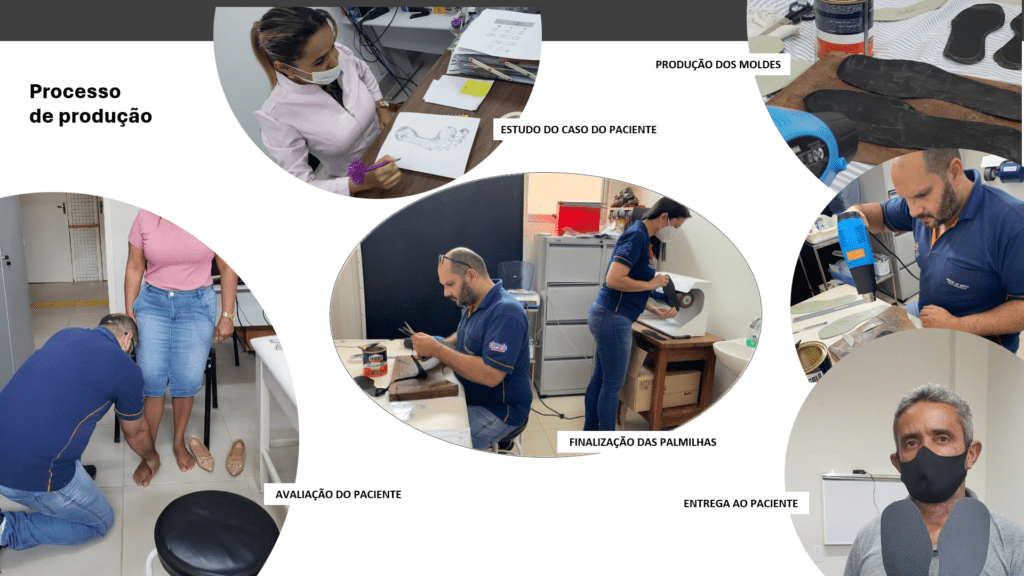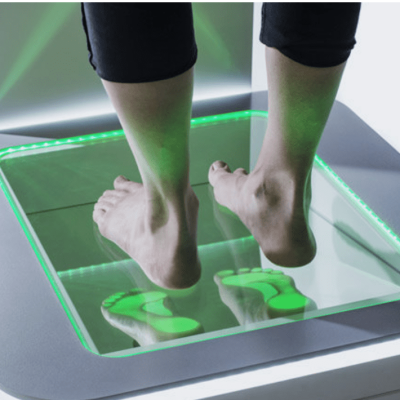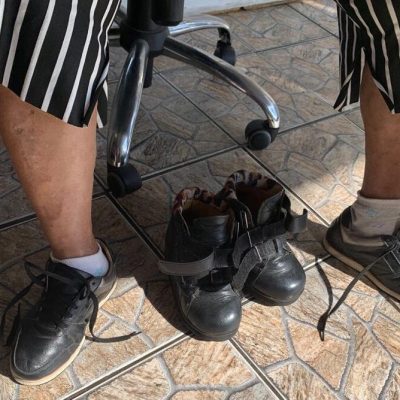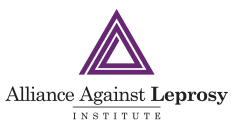FeetHansen

The challenges faced by people with Hansen’s disease are many, and mobility is one of them. Alterations in sensitivity and muscle strength in the feet due to nerve dysfunction can compromise everyday tasks such as walking, up and down stairs. In addition, there is a risk of injuries and lesions in this area. In this context, the use of conventional footwear is not always possible. It is with the aim of offering a better quality of life to this population that the AAL Institute aims to set up orthopedic workshops for the manufacture of insoles and the fitting of shoes in Brazil’s main endemic towns.
The FeetHansen initiative was initially set up in the state of Mato Grosso, through a Technical Cooperation Agreement with the Mato Grosso State Secretariat for Health (SES-MT), as part of the “Mato Grosso in Networks: Comprehensive Leprosy Care” project. The initiative took its first steps in 2020, with the aim of structuring an integrated leprosy care network based on innovative and permanent strategies, including the setting up of three orthopedic workshops to meet the needs of people with or who have had leprosy and require custom-made insoles and shoe adaptations due to the after-effects caused by leprosy.
Due to the pandemic, activities began in March 2022, and today the project is in full swing, financed by resources provided by the International Company of the Order of Malta Against Leprosy (CIOMAL), with which the AAL Institute has a strong partnership. Three Mato Grosso municipalities – Alta Floresta, Tangará da Serra and Barra do Garças – have set up shoemaking workshops, and their health professionals have been trained by technical consultants from the AAL Institute.
The Technical Director of the AAL Institute and consultant for this action, occupational therapist and Doctor of Health Sciences, Susilene Nardi, explains that the AAL Institute initially offers theoretical and practical training to professionals previously selected by the municipality’s manager, to ensure that the specialized workshop set up operates effectively. The AAL Institute provides specific equipment and consumables, so that trained professionals can start work immediately after training. In addition to providing human resources for the development of the service, it is also the responsibility of the municipality’s manager to designate the location where the workshop will be set up and to provide all the organizational infrastructure needed to run the service.
“The 12 hours of theoretical training are provided by me remotely. Another 8 hours are given by a physiotherapist who works in the region and has practical experience. He travels to the municipality to help install the equipment and already carries out the practical part of the training. Local professionals make the insoles and shoe adaptations after a careful assessment of each patient’s lower limbs,” explains Dr. Susilene. André Brito, a physiotherapist working at Alta Floresta / MT, adds: “The patient is assessed and, depending on his or her walking style and plantar ulcers, a specific insole is made. The results are improved foot sores and pain, as well as increased quality of life, as the patient can walk and carry out daily activities.”
For Dr Susilene, the emphasis on quality is one of the hallmarks of the actions that AAL is committed to offering. “The aim is not to reach a large audience and lose quality, but to offer quality in services. To this end, AAL has made a great contribution to those who have or have had leprosy and has had a very positive impact on the people it assists.”

The FeetHansen project also includes the production of Digitized Shoes. In an unprecedented global study, the AAL Institute has set up a modern solution to manufacture fully customized shoes, using cutting-edge technology. These digitized shoes are intended solely for patients who are unable to adapt commercial footwear, which accounts for around 15% of cases of nerve damage to the feet.
The feet of leprosy sufferers are digitally scanned, and the shoes are adapted to each patient, respecting the asymmetries of the feet, while the soles are 3D printed.
This action considerably improves the quality of life of the participants, as these shoes provide comfort, better wound healing, walking stability and social acceptance, with the reduction of prejudice. They are produced quickly and delivered directly to the patient.
In 2022, the AAL Institute presented this initiative to the international scientific community at the World Leprosy Congress, held in India, and at the Brazilian Leprology Congress, held in Vitória / ES.


